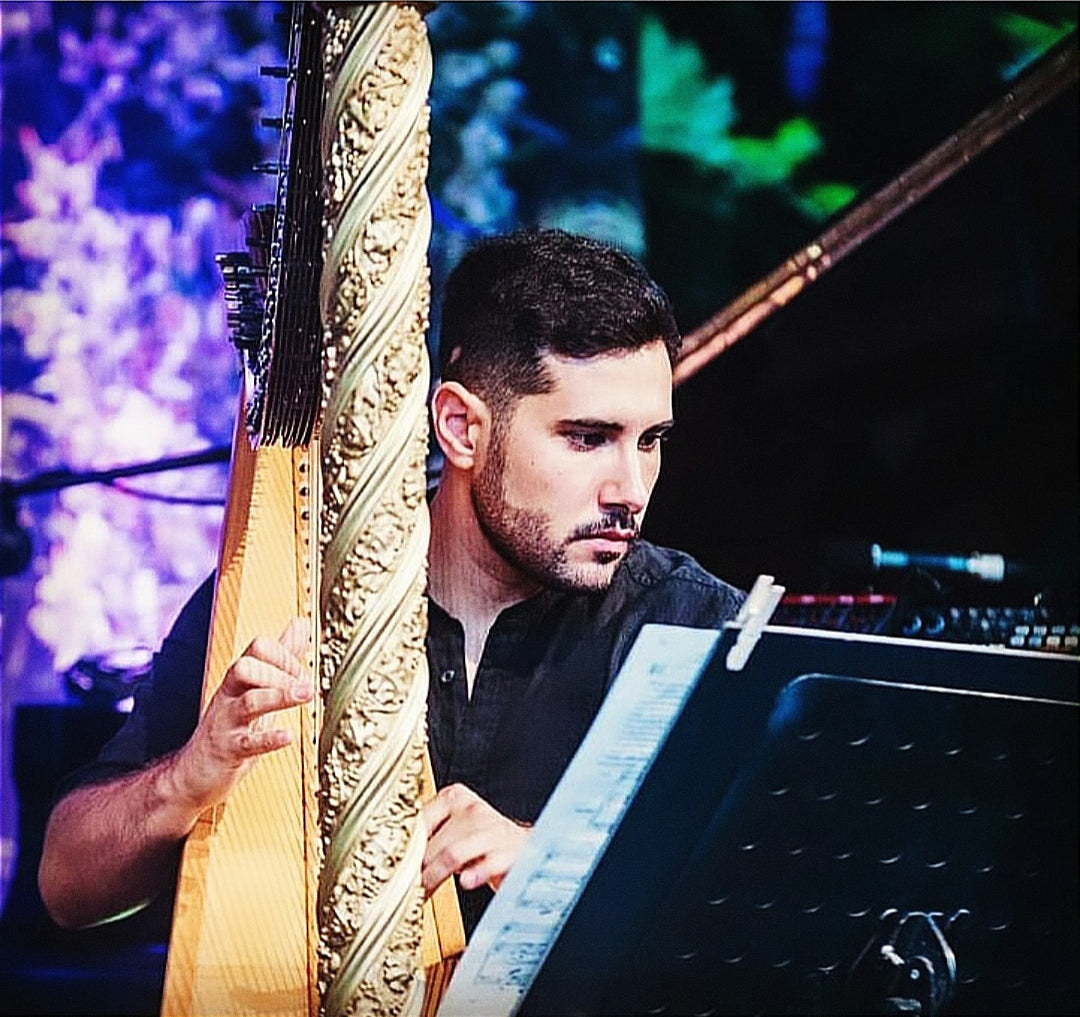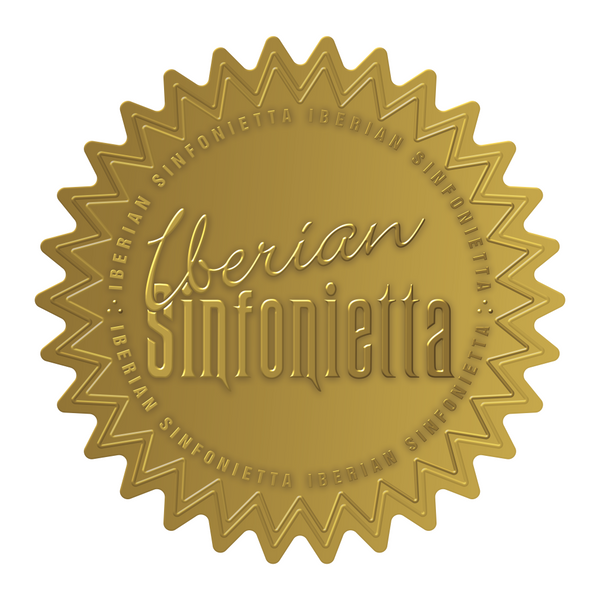
HARP AND FLUTE: PERFECT SYMBIOSIS IN A WORK OF GREAT DELICATE
Dear public
We leave you with the last entry regarding the concert next Saturday, May 21, which will also be the last of Iberian Sinfonietta before resuming the activity in September. On this occasion it will be to know the point of view of Juan Ramón Hernández Leiva , harpist who will share the Mozart Concerto with the flutist that we presented in the previous entry . In this case, Juan Ramón, has a different vision from his instrument in some aspects compared to Pedro Girva Vidal , the flutist, but in others, both musicians coincide. We leave the same questions to both soloists so that you can know the vision of each of them on the same work. In both cases, they are great performers, known and very loved by Iberian Sinfonietta , which is why they have collaborated throughout the history of our orchestra, always garnering warm and unanimous applause from the public. On Saturday, we do not doubt that it will happen again and the performance of each one from their instrument in the Mozart Concerto for flute and harp will be one of the memorable moments of the evening.

Juan Ramón, you have already played on more occasions with Iberian Sinfonietta as Arpa soloist, how was the experience?
Yes, I have played this same Mozart concert once as a soloist and occasionally as a tutti, it seems to me to be a fantastic group on a technical level, for me, as a harpist, with the right size that allows you not to have to sacrifice sound quality in pro of the volume, in addition to the fact that the teacher manages to take great advantage of it and create a very comfortable work environment.
We asked Pedro Girva Vidal about the work from the point of view of the Flute, what is yours from the Harp?
The role of the harp in Mozart's work is limited only to this concert and to a “theme and variations” (of which I am not completely clear about its authorship). The harps of that time were at the beginning of a transition and were not at the technical level of the music of the period, which is why we do not find any repertoire of the great composers until well into the 19th century. However, all scholars consider this concert to be one of Mozart's best works (which, by the way, have not yet been paid for).
For Harp literature, what relevance does this work have?
Well, this is practically Mozart's only work for the harp and it is also one of the composer's best works, you can imagine. It is a mandatory work in all study plans, a pearl that we harpists take great care of. For the harp, although it seems that its writing is simple, it is one of the most difficult works to play because it is also very involved, placing a finger incorrectly or slipping a note causes you to drop the entire passage, which is why it requires being in good technical form and staying very focused. In the words of a great harpist (who I won't name so as not to take away his elegance): "to play Mozart's concerto you just have to study a lot and in the concert tighten your ass and push forward, there is no harpist no matter how good he is." who does not give respect to interpreting it."
How has the work shared with the Master been on this occasion?
With the Maestro and the orchestra the work has always been very comfortable, the truth is that both he and the soloist respect calm tempos, which is what the work requires, all the historicist interpretations of the concert support more relaxed tempos, which is imposing, also as I said before, the size of the orchestra is ideal for this type of programs since some can concentrate more on playing beautifully and less on being heard. I have to say that with Juan Paulo Gómez we work very well and the work environment is unbeatable.
At what moment are you musically, with what projects?
Well, musically, I find myself in a bit of a strange period. Yes, it is true that I consider that I am in a very stable period, perhaps in this period of my life I am more concerned with playing beautiful things than virtuoso things, which makes my work very complicated because I arrange many pieces that are not for harp and in the end technically They are very difficult, but I am also experimenting with historical instruments, some of them that practically no one plays and you have to be self-taught, so I also dedicate part of my study time to research and I have to say that researching often wastes a lot of time. in doing and trying things that in the end don't take you anywhere, but hey, I guess the important thing is to enjoy the journey. I have to thank the luthier German Ocaña, since without him I would not be able to enjoy these instruments with which to experiment, either because he has restored them (as is the case with the harp that I will use in the concert) or because he has given me given recommendations for their arrangements.
We take this opportunity to say goodbye to our soloist, wish him all the luck in the world and see them next Saturday at 7:00 p.m. at the Peace Palace in Fuengirola with a beautiful program. Don't miss it, the next one will be in September. Happy summer!
Jorge Rodríguez Morata
Pedagogical content coordinator
